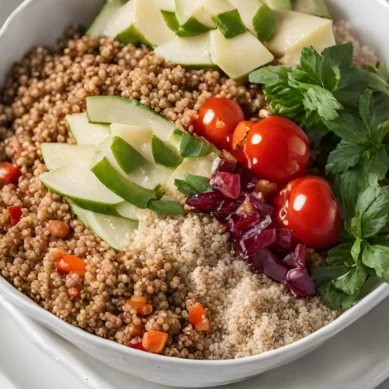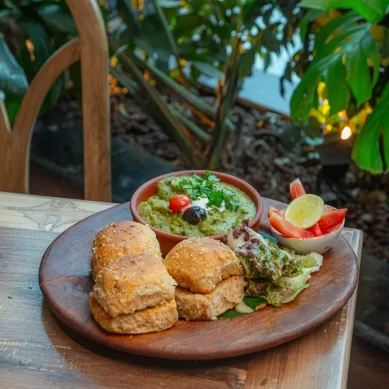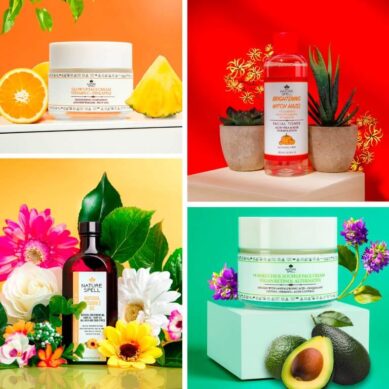Take care of your nutrition during the lockdown period. Preety Tyagi who was a student of IIN, Institute of Integrative Nutrition, New York is passionate about health issues and wants to change people’s perspectives towards the word, Disease. She wants to impact as many people in a positive and healthy way as possible. Being educated in Commerce and after attaining a degree in MBA in marketing, what drove her towards the health and nutrition education was that she wanted to learn more and more about nutrition and how it impacts our health. After finding solutions and healing of her health issues and after solving her family’s health issues just through proper diets and healthy nutrition, she started health coaching as a career and has been able to help many people in different countries, through health coaching now. Here are few useful tips from Preety…

Anti-stress food items to add to our diet to cope with the pandemic stress: –
People can make a variety of lifestyle changes to help manage their anxiety. Eating a diet high in vegetables, fruit, legumes, whole grains, and lean protein can be helpful. Anxiety is a widespread condition, affecting millions of people globally. However, the reasons for uncalled for stress are many during the days of Lockdown and the fear from the coronavirus, covid19. The following are the symptoms of anxiety.
- tension
- excessive worry about everyday events and problems
- irritability
- difficulty concentrating
- issues with their personal social and work relationships
- heart palpitations, elevated heart rate
- muscle tension
- chest tightness
Some such foods are mentioned below.
- Brazil nuts
Brazil nuts contain selenium, which may help to improve mood. Brazil nuts are high in selenium. Selenium may improve mood by reducing inflammation, which is often at heightened levels when someone has a mood disorder, such as anxiety. Selenium is also an antioxidant, which helps prevent cell damage. It is also anti-carcinogenic, which helps to prevent cancer from developing. Other nuts, animal products, and vegetables, such as mushrooms and soybeans, are an excellent source of selenium. However, selenium must not be over consumed. That’s why one must be careful while taking selenium in supplementation. Brazil nuts and other nuts are also a good source of vitamin E. Vitamin E is an antioxidant. Antioxidants can be beneficial for treating anxiety, while some research has shown that low levels of vitamin E may lead to depression in some people.
- Pumpkin seeds and Bananas
Pumpkin seeds are an excellent source of potassium, which helps regulate electrolyte balance and manage blood pressure. Eating potassium-rich foods such, as pumpkin seeds or bananas, may help reduce symptoms of stress and anxiety. Pumpkin seeds are also a good source of the mineral zinc. One study carried out on 100 female high school students found that zinc deficiency may negatively affect mood. Zinc is essential for brain and nerve development. The largest storage sites of zinc in the body are in the brain regions involved with emotions.
- Fatty fish
Fatty fish, such as salmon, mackerel, sardines, trout, and herring, are high in omega-3. Omega-3 is a fatty acid that has a strong relationship with cognitive function as well as mental health. However, recent research has shown that if a person eats too much of another fatty acid, called omega-6, and not enough omega-3, they may increase their risk of developing mood disorders, such as anxiety. Omega-3-rich foods that contain alpha-linolenic acid (ALA) provides two essential fatty acids: eicosapentaenoic acid (EPA), and docosahexaenoic acid (DHA). EPA and DHA regulate neurotransmitters, reduce inflammation, and promote healthy brain function. Eating at least two servings of fatty fish a week. A study conducted on men found eating salmon three times a week reduced self-reported anxiety. Salmon and sardines are also among the few foods that contain vitamin D.
Vitamin D
Researchers are increasingly linking vitamin D deficiency to mood disorders, such as depression and anxiety. Other studies on pregnant women and older adults have also highlighted how vitamin D might improve mood. Vitamin D may also improve seasonal disaffected disorder during winter.
- Eggs
Egg yolks are another great source of vitamin D. Eggs are also an excellent source of protein. It is a complete protein, meaning it contains all the essential amino acids the body needs for growth and development. Eggs also contain tryptophan, which is an amino acid that helps create serotonin. Serotonin is a chemical neurotransmitter that helps to regulate mood, sleep, memory, and behaviour. Serotonin is also thought to improve brain function and relieve anxiety.
- Dark chocolate
Researchers have found that dark chocolate help to reduce stress. Experts have long suspected that dark chocolate might help reduce stress and anxiety. Other studies have generally found that dark chocolate or cocoa may improve mood. However, many of these studies are observational, so the results need to be interpreted with caution. Chocolate has a high tryptophan content, which the body uses to turn into mood-enhancing neurotransmitters, such as serotonin in the brain.
Dark chocolate is also a good source of magnesium. Eating a diet with enough magnesium in it or taking supplements may reduce symptoms of depression. When choosing dark chocolate, aim for 70 percent or more. Dark chocolate still contains added sugars and fats, so a small serving of 1 to 3 grams (g) is appropriate.
- Turmeric
Turmeric is a spice commonly used in Indian and South-East Asian cooking. The active ingredient in turmeric is called curcumin. Curcumin may help lower anxiety by reducing inflammation and oxidative stress that often increase in people experiencing mood disorders, such as anxiety and depression. A 2015 study found that curcumin reduced anxiety in obese adults. Another study found that an increase of curcumin in the diet also increased DHA and reduced anxiety. Turmeric is easy to add to meals. It has minimal flavor, so goes well in smoothies, curries, and casserole dishes.
- Chamomile
Many people around the world use chamomile tea as an herbal remedy because of its anti-inflammatory, antibacterial, antioxidant, and relaxant properties. Some people believe that the relaxant and anti-anxiety properties come from the flavonoids present in chamomile. A recent study found that chamomile did reduce anxiety symptoms. However, it did not prevent new episodes of anxiety. Chamomile tea may be useful in managing anxiety. It is readily available and safe to use in high doses.
- Yogurt
Yogurt contains healthful bacteria, Lactobaccilus and Bifidobacteria. There is emerging evidence that these bacteria and fermented products have positive effects on brain health. A study found fermented foods reduced social anxiety in some young people, while multiple studies found consuming healthful bacteria increased happiness in some people. Including yogurt and other fermented food in the diet can benefit the natural gut bacteria and may reduce anxiety and stress. Fermented foods include cheese, sauerkraut, kimchi, and fermented soy products.
- Green tea
Green tea contains an amino acid called theanine, which is receiving increasing scrutiny due to its potential effects on mood disorders. Theanine has anti-anxiety and calming effects and may increase the production of serotonin and dopamine. Green tea is easy to add to the day-to-day diet. It is a suitable replacement for soft drinks, coffee, and alcoholic beverages.
Five ways on how nutrition could help your immune system to fight coronavirus
Novel Coronavirus has been a topic of every one’s worry ever since it came into existence. It has literally put life on hold, and is spreading like a fire amongst people. Countries being locked down and works been put on a standstill. However, there is a lot that can be done on individual level, by people, that can prevent them from this deadly virus.
Since it attacks on the body as any usual virus, it becomes evident that keeping our immune systems boosted, will help us stay safe from it, along with many other precautions.
Defend yourself with powerful nutrients
Top three nutrients to ensure a strong immune system are vitamin C, zinc and iron. The benefits of vitamin C to boost immunity are well documented reminds people to take it before the onset of cold or flu symptoms.
“Try to get your vitamin C in its natural form, unless you know you aren’t getting enough from dietary sources, such as citrus fruits such as oranges, grapefruit and kiwis, as well as guava, bell peppers and broccoli, are all good sources.
Zinc deficiency is associated with increased susceptibility to pneumonia and other infections in children and the elderly. To get enough zinc, she recommends eating eggs, poultry, fortified breakfast cereals, beans, chickpeas and nuts (cashews and almonds). Or just take a good Zinc Supplement.
If you are getting enough zinc in your diet, then you are likely getting enough iron as the two are in a lot of common foods. “Vegetarians must make sure they eat the plant-based iron with vitamin C, which can enhance the absorption of plant-based iron.”
A good Vitamin D Supplement is a must for everyone to keep their levels on track these days. Go out in the early morning sunlight for vitamin D absorption.
Include food mentioned below in your diet as they are alkaline in nature and will prevent the body from coronavirus and other viruses.
Lemons, Limes, Avocadoes, Garlic, Mango, Tangerines, Oranges, Pineapples, Dandelions, Kiwis, berries, Amla (Gooseberry)
Also, include anti-viral herbs such as Tulsi, Garlic, Ginger, Ginseng, Oregano, Lime Balm, Fennel, Rosemary etc.
Stay Safe and defend your body with proper nutrition, in these difficult times.



































